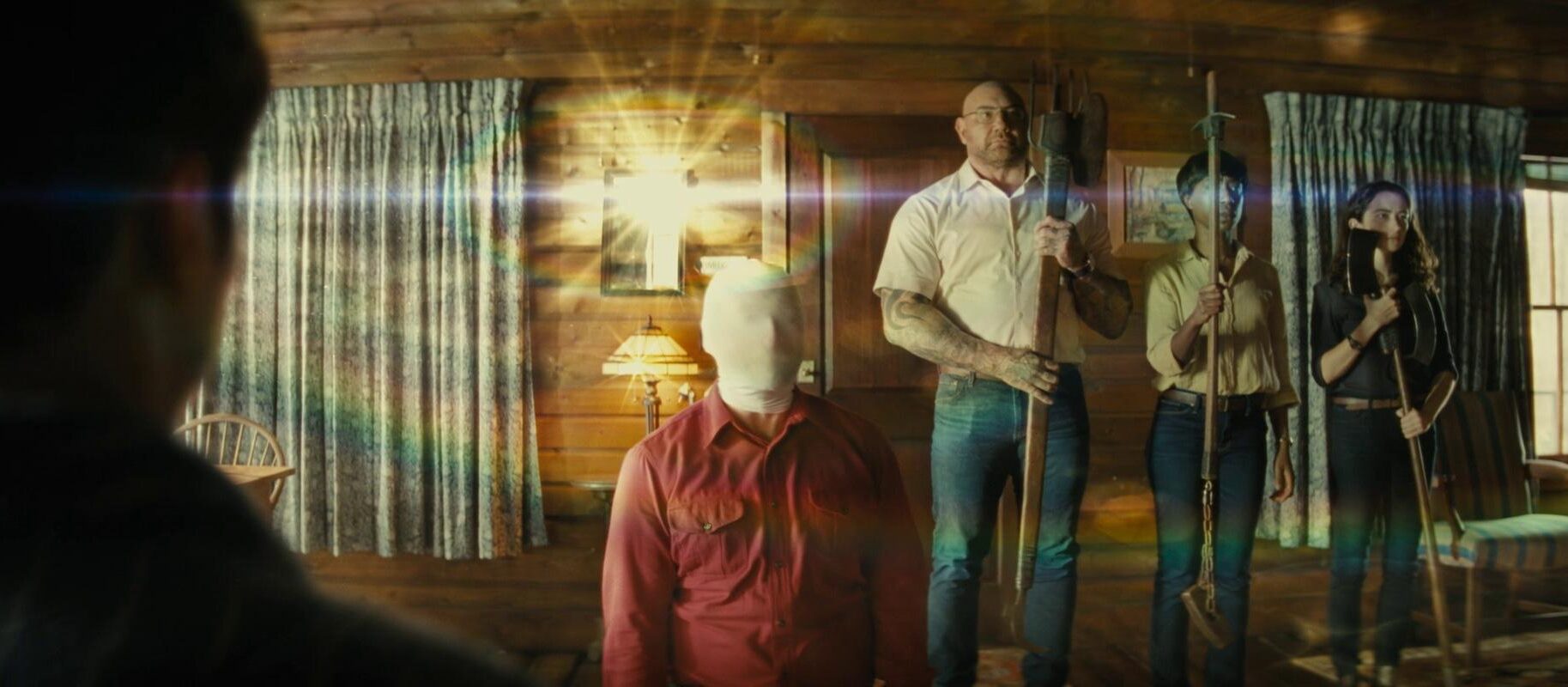

“Maybe the truth is that the end was happening long before we got to this cabin.”
Despite some dodgy theological implications, M. Night Shyamalan’s Knock at the Cabin is another mild success for the director. Far from a typical home invasion movie, it pits a gay couple (Jonathan Groff, Ben Aldridge) and their adopted daughter (Kristen Cui) against four intruders (Dave Bautista, Nikki Amuka-Bird, Rupert Grint, Abby Quinn) armed with gnarly homemade weapons, who, as the story unfolds, reveal themselves to be a ragtag suicide cult acting under the influence of a shared doomsday vision.
In a conventional scenario of this type, the victims would be caught off guard, striving to understand what is happening even as they are forced to defend themselves with lethal force. However, in Shyamalan’s film—based on Paul Tremblay’s The Cabin at the End of the World—the invaders themselves are also uncertain what is happening. In fact, they barely act socialized at all. They claim that their shared visions brought them together, but have they been manipulated? If so, why? If their hostages finally make the impossible decision they’ve been burdened with, will the Armageddon be stayed? The proposition—the couple and their daughter must choose a sacrificial victim from their family, and the other two must kill that person themselves—is so absurd that one actively begins looking for the twist that (unexpectedly) never comes. Instead, the earnest nutjobs start offing themselves to get the point across. The bound victims naturally think their captors are whackos, but with a severed phone line and no cell service out at the remote lake house, the dire TV newscasts of worldwide cataclysms start to make the impending eschaton feel more convincing.
In real time as the film plays out, some glaring plot holes present themselves, but Shyamalan effectively utilizes Bautista’s gentle giant persona, a strong cast, and his filmmaking craft to realize a mounting sense of dread that disguises many flaws. Instead of a twist, the film closes the curtain with a semi-cathartic needle drop on KC and The Sunshine Band’s ‘Boogie Shoes’. To be sure, this is not of equal caliber with Shyamalan’s best work, and it doesn’t measure up to other imagined apocalypse films like Peter Weir’s The Last Wave or Jeff Nichols’s Take Shelter, or even Drew Goddard’s similarly-themed horror comedy The Cabin in the Woods (indeed, this film could have used a dose of humor), but I’m all for the filmmaker continuing to self-produce genre films.